LABORATORY FACILITIES
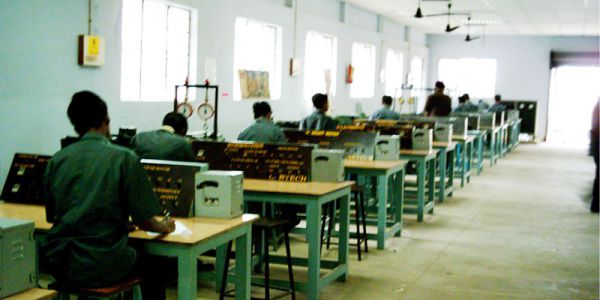
The Electrical and Electronics Engineering department has the following Labs
To provide adequate knowledge in the time response of systems and steady state error analysis. To accord basic knowledge in obtaining the open loop and closed loop frequency responses of systems. To understand the concept of stability of control system and methods of stability analysis. To study the three ways of designing compensation for a control system. It helps students to enhance their knowledge in various control applications such as Robotics, Automation, Avionics, etc.

The objective of the Electric Machine Lab is to expose the students to the operation of D.C., AC machines and transformers and give them experimental skill. It also aims to understand the generation of D.C. voltages, ac voltages by using different type of generators and study their performance. It also enables the students to understand the working principles of D.C. motors, AC Motors and their load characteristics, starting and methods of speed control. Further it helps to familiarize with the constructional details of different type of Alternators, working principle and their performance.
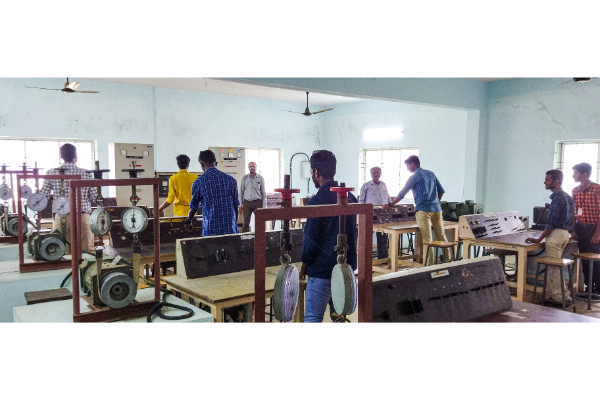
The most effective way to acquire the practical skills in engineering studies is probably by experimenting in a laboratory. The process of experimentation involves observation, familiarization with various pieces of equipment and information. These are the skills required of an engineer. It is the laboratory which gives the exposure to the students about Electrical wiring & measurements of various electrical parameters. As per the Anna university curriculum, the experiments like House wiring, Earth testing, Measurements of current, voltage were practiced in laboratory sessions.
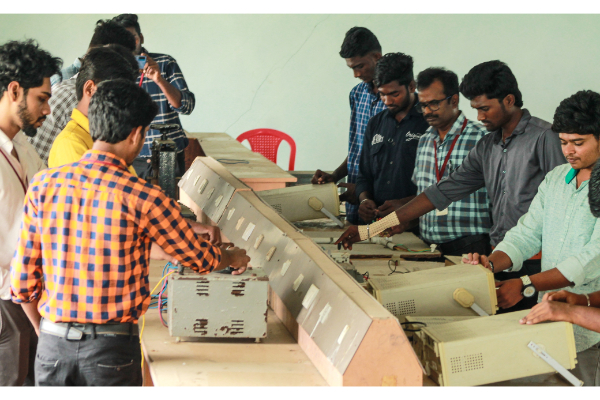
To impart the practical knowledge of working and characteristics of the basic electronic devices such as
- p-n junction diode
- Bipolar transistor
- Field effect transistor
- LED, LCD and other photo electronic devices
- Power control / regulator devices.
It helps students to understand the different configuration of transistors and its performance parameters. It provides platform for students to develop their skills in electronic design and circuits.
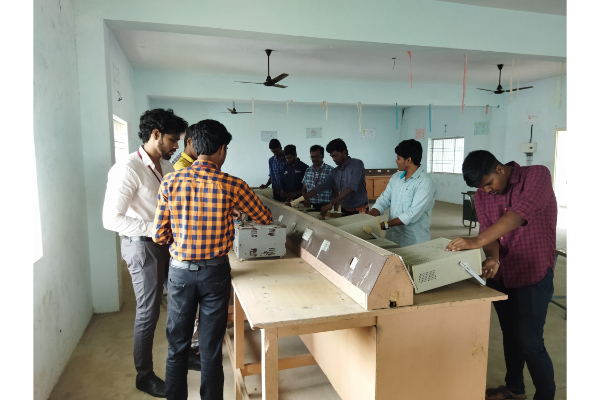
This lab helps the students to study the switching devices, power devices and its applications in rectifier, inverter, chopper and resonant converter, to learn the PWM Techniques for both UPS and AC Drive applications. This lab is fully equipped with all types of modules like SCR based half and fully controlled converter kit, IGBT based three phase PWM inverter module, chopper modules based V/I commuted chopper module with firing module, Power Scope, DSO, Isolation Transformer, single phase Auto Transformer Meters, MOSFET Based step Up and Step Down Choppers module, DSP based closed drive for induction motor, DSP based closed drive for induction motor, Induction motor speed control using FPGA, DSP based chopper fed DC motor drive, Switched reluctance motor drive using DSP, PLC based drives.
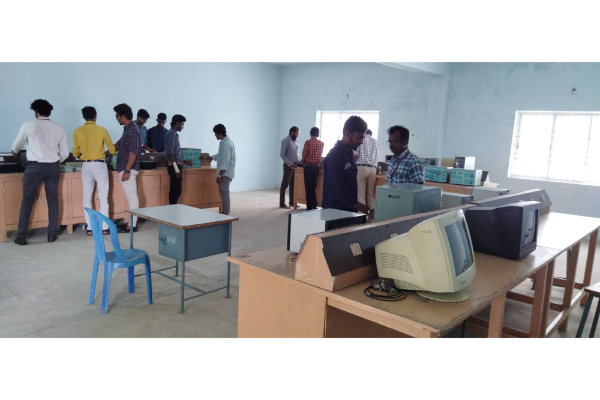
The lab is well equipped with softwares like Matlab, ETAP, and PSCAD. It provides an opportunity for the student and the faculty members to carry out their project modules and related works. Matlab R2010b software incorporates tool boxes: Control Systems, Communication, Simulink, which provides a flexible environment for technical computing in the areas of electrical power systems, control systems, power electronics etc.
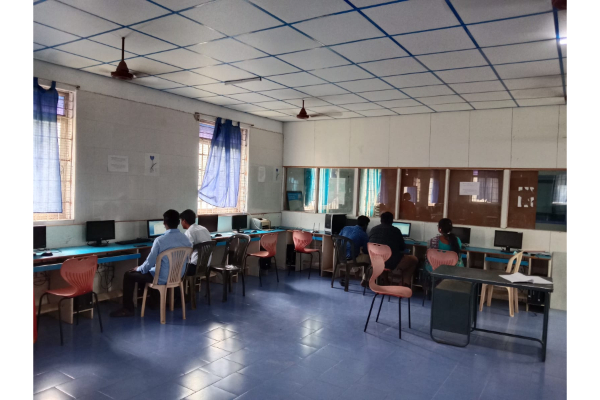
Renewable energy is energy derived from natural sources that are replenished at a higher rate than they are consumed. Sunlight and wind, for example, are such sources that are constantly being replenished. Renewable energy sources are plentiful and all around us. Renewable power is booming, as innovation brings down costs and starts to deliver on the promise of a clean energy future.
- To train the students in Renewable Energy Sources and technologies.
- To provide adequate inputs on a variety of issues in harnessing Renewable Energy.
- To recognize current and possible future role of Renewable energy sources.
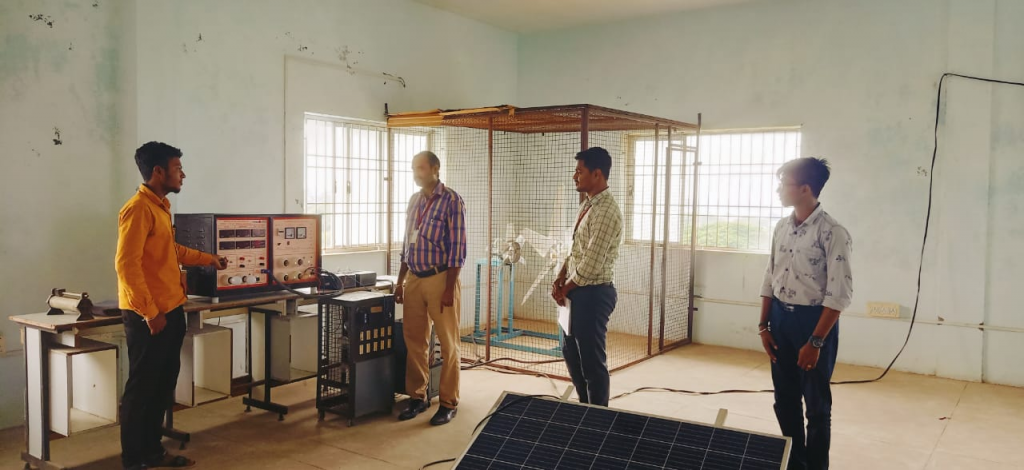


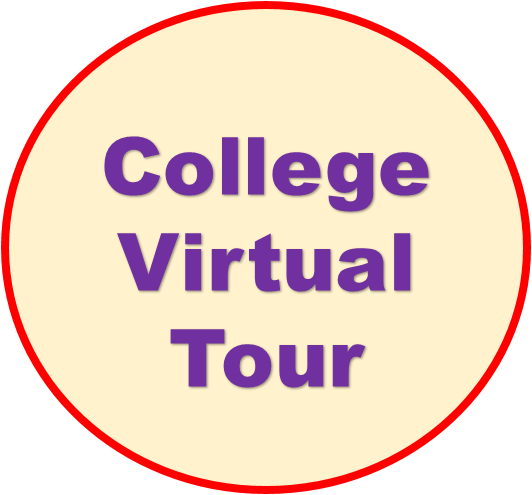
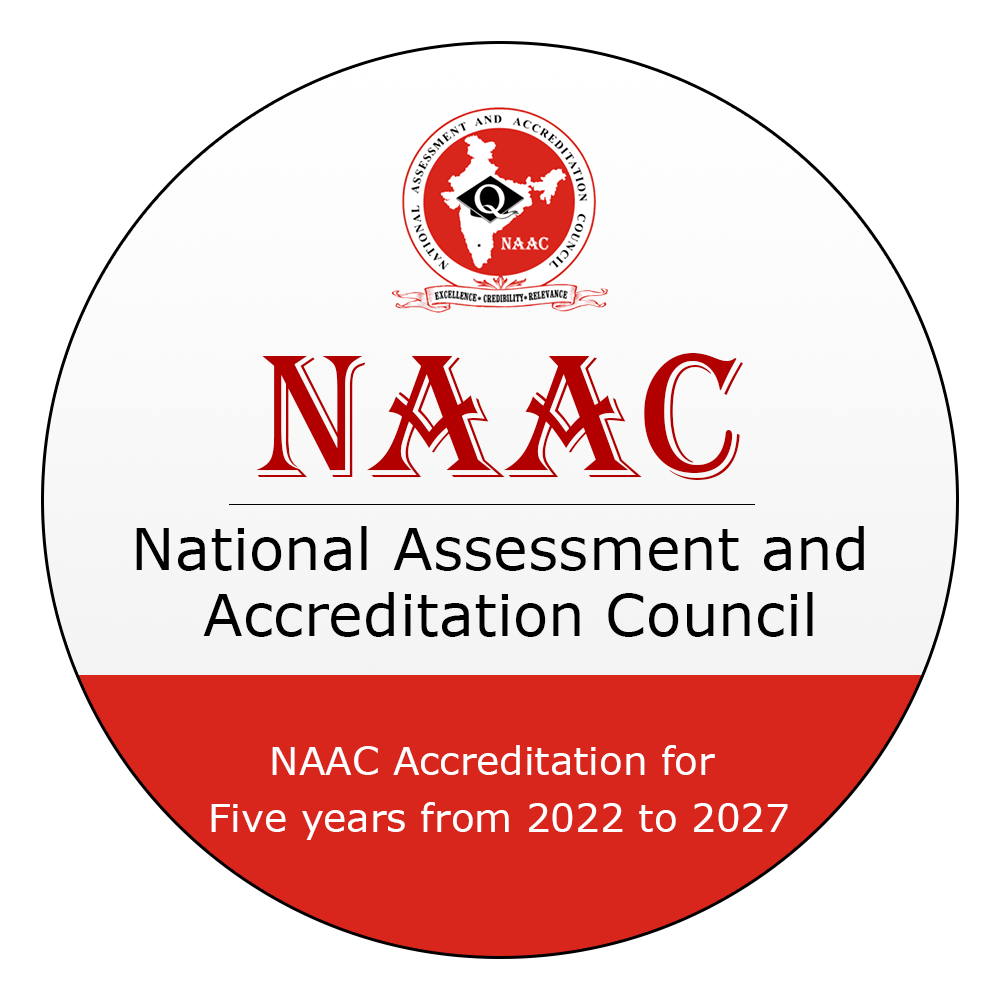
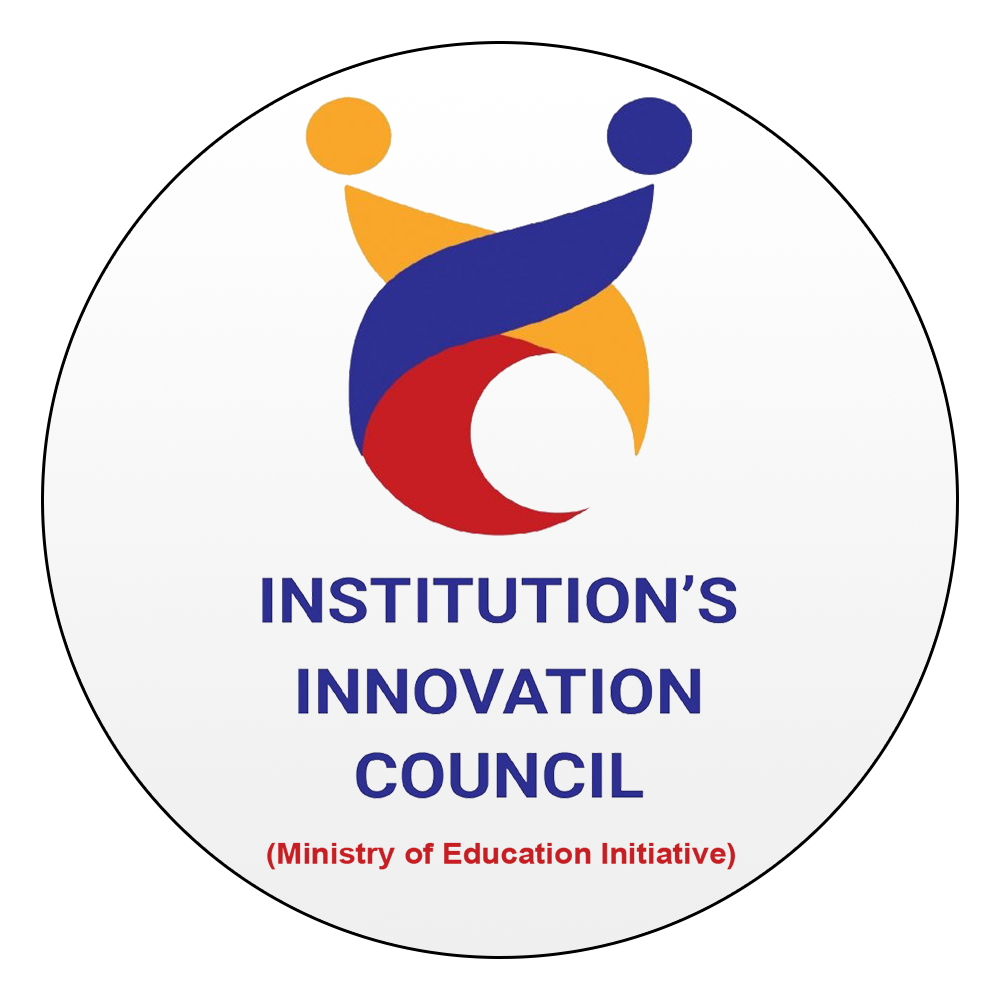
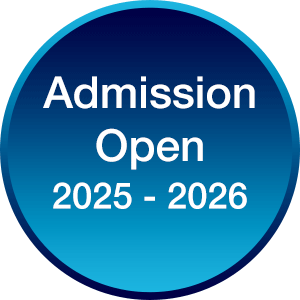
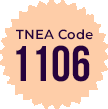


For Online Grievance : onlinegrievance@jec.ac.in